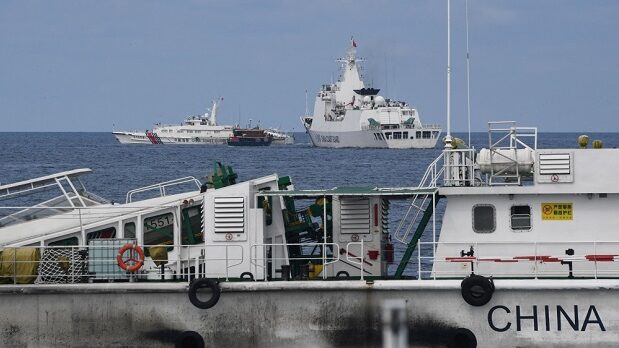SEPTEMBER 1 — China has not accepted the compulsory jurisdiction of the International Court of Justice (ICJ). This does not prevent China from agreeing to ICJ jurisdiction in specific cases. Of the five permanent members of the UN Security Council, only the UK currently accepts the compulsory jurisdiction of the ICJ.
Not to be deterred, the Philippines instituted arbitral proceedings against China in January 2013 (South China Sea arbitration). The proceeding was brought under the United Nations (UN) Convention on the Law of the Sea (UNCLOS).
Reference was made to an official declaration of 2006, which stated that China accepted no compulsory settlement procedures provided by UNCLOS in relation to territorial sovereignty and maritime delimitation.
China maintained that this had not yet occurred while asserting that negotiations and conciliation to be the appropriate, effective and universally used means for peaceful settlement of international disputes including issues of sovereignty and territorial integrity.
While China disputed the tribunal’s jurisdiction, the tribunal in October 2015 held that it did have jurisdiction to rule on some of the claims brought by the Philippines, on the basis that they were not covered by China’s exclusion of sovereignty and delimitation disputes.
In July 2016, the tribunal unanimously found that China’s claims of historical rights to the region were ill-founded and contrary to international law. Expectedly, the decisions were rejected by the Chinese government.
China’s hostility to the South China Sea arbitration proceedings had been viewed with much concern. It raised the question whether the Chinese government was seeking to undermine the rules-based international order.
Harriet Moynihan, an associate fellow in the International Law Programme at Chatham House, with particular expertise in international human rights law and international humanitarian law, offers the following insights though:
“China’s approach to the settlement of international maritime disputes needs to be evaluated from a broader perspective than simply the South China Sea issue. We know from Chinese experts that in the South China Sea case, one background issue that played into China’s refusal to engage in litigation with the Philippines (which was represented by leading Western international lawyers) was a lack of experience before international courts and tribunals.
“China has been rapidly building up its capacity and expertise in relation to maritime disputes over the past decade. It has developed large centres of excellence in leading universities (such as the Centre for Oceans Law and Policy at Shanghai Jiao Tong University, and the Institute of the Law of the Sea at the Ocean University of China in Qingdao) and state-affiliated think-tanks (such as the China Institute for Marine Affairs and the National Institute for South China Sea Studies).” (See “China’s Evolving Approach to International Dispute Settlement” [2017])
China’s confidence in the law governing international maritime disputes has since grown following heavy investment in building up expertise in international law.
The Chinese are “upskilling”. Many Chinese international lawyers are spending time studying international law at Western universities, often funded by the Chinese government.
The number of Chinese students doing master’s degrees or doctorates in international law, both in China and overseas, are also swelling.
There is growing interest among members of the Chinese international law community in engagement with their counterparts outside China, including through sharing platforms and running joint projects.
China’s attitude towards international dispute settlement is evolving towards greater acceptance and engagement. But that is not unlike many Asian states generally.
Be that as it may, kudos to the Foreign Ministry for the strong statement that “China Standard Map Edition 2023” does not bind Malaysia. Foreign Minister Zambry Abdul Kadir has also said that the government will send a protest note to China.
Malaysia must continue to engage with China. Much is at stake. MM
ANN / MALAY MAIL
.
